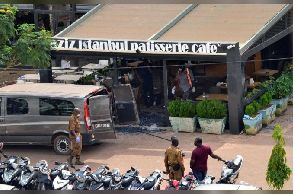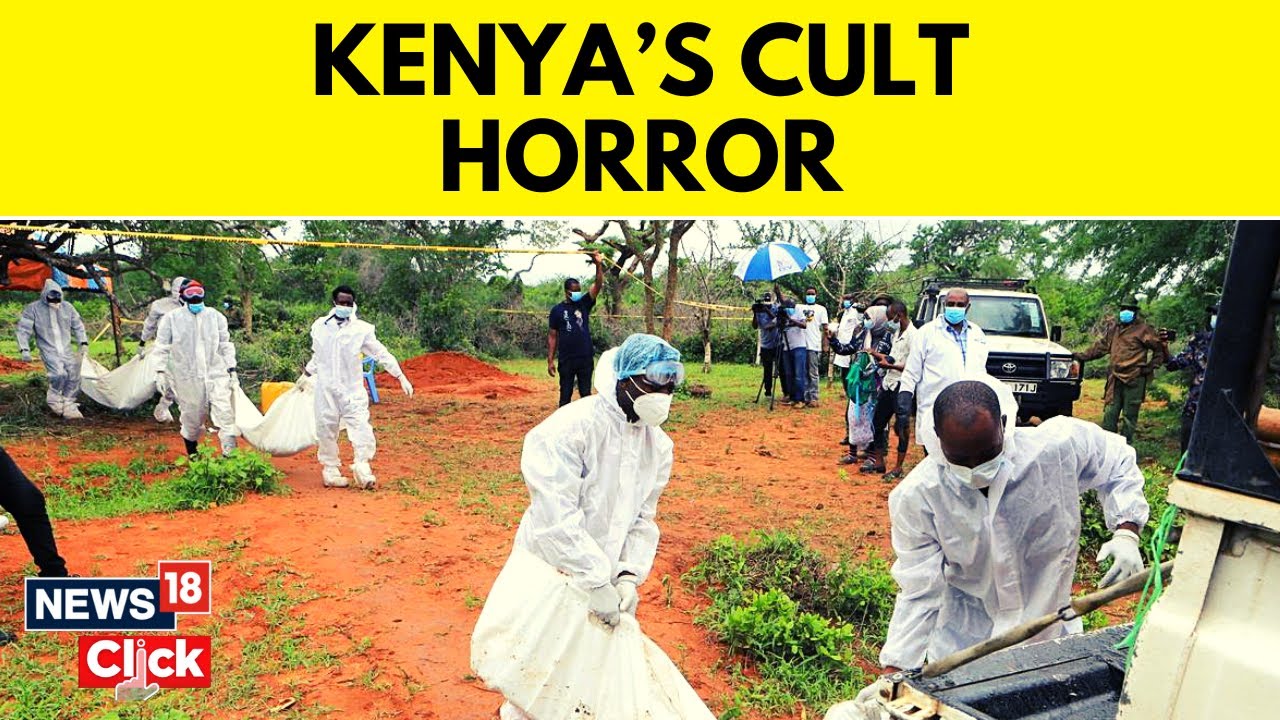Suspected Islamist militants killed at least 18 people and wounded several during a raid on a restaurant in Burkina Faso’s capital overnight, but security forces shot dead both attackers and freed people trapped inside the building.
“This is a terrorist attack,” Communications Minister Remi Dandjinou told a news conference on Monday.
Burkina Faso, like other countries in West Africa, has been targeted sporadically by jihadist groups. Most attacks have been along its remote northern border with Mali, which has seen activity by Islamist militants for more than a decade.
A Reuters witness saw customers running out of the Aziz Istanbul restaurant in central Ouagadougou as police and paramilitary gendarmerie surrounded it, amid gunfire.
Canada’s Foreign Minister Chrystia Freeland said two Canadians were among the dead and French Foreign Affairs minister Jean-Yves Le Drian said a French citizen was killed.
Lebanon’s interior ministry said three Lebananese died, including one who was also a Canadian national.
Earlier, Burkina Faso Foreign Affairs Minister Alpha Barry said at a news conference that seven Burkinabes, two Kuwaitis, a Nigerian, a Senegalese and a Turk were also among at least 18 killed.
French President Emmanuel Macron discussed the situation with Burkina Faso President Roch Marc Kabore, his office said, including the role of a new multinational military force aimed at fighting Islamist militants across the vast Sahel region of Africa.
A woman said she was in the restaurant celebrating her brother’s birthday when the shooting started.
“I just ran but my brother was left inside,” she told Reuters TV as she fled the building.
For many it was a grim echo of a similar attack on a restaurant and hotel in Ouagadougou in January 2016 in which 30 people were killed. Al Qaeda in the Islamic Maghreb (AQIM) claimed responsibility.
AQIM and related Islamist groups were largely confined to the Sahara desert until they hijacked a rebellion by ethnic Tuareg separatists in Mali in 2012, and then swept south.
French forces intervened the following year to prevent them taking Mali’s capital, Bamako, but they have since gradually expanded their reach across the region, launching high-profile attacks in Bamako, Burkina Faso and Ivory Coast, as well as much more frequent, smaller attacks on military targets.
Gunmen attacked a U.N. peacekeeping base in Mali’s northern city of Timbuktu on Monday, the peacekeeping mission said, adding that it had deployed a rapid response force with helicopters to the scene.
In another incident on Monday, armed men opened fire on U.N. peacekeepers and Malian troops in Douentza, central Mali, killing a Malian soldier, according to Malian authorities. A peacekeeper was also killed, a U.N. spokesman in New York said.
A new al Qaeda-linked alliance of Malian jihadist groups claimed an attack in June that killed at least five people at a luxury Mali resort popular with Western expatriates just outside Bamako.
“I am speechless,” Abdoulaye Bance said on a street near the Ouagadougou restaurant, where shops and banks were shuttered up and traffic light.
“It is not the first time this is happening in our country. There are many victims. There is a feeling of despair.”
African nations launched a new multinational military force last month to tackle Islamist militants in the Sahel region, a huge band of territory that fringes the Sahara desert and stretches right across North Africa. However, the force will not be operational until later this year and currently faces a budget shortfall.
Macron’s office said he and Kabore agreed it was “imperative” to speed up the force’s implementation.
“They will have further contact with each other in the coming days, as well as with other regional heads of state over the progress of this plan,” it said in a statement.
Some observers see the initiative by Mali, Mauritania, Burkina Faso, Niger and Chad as forming the basis of an eventual exit strategy for around 4,000 French troops now deployed to the volatile region. But Macron said Paris had no plans to withdraw them.








